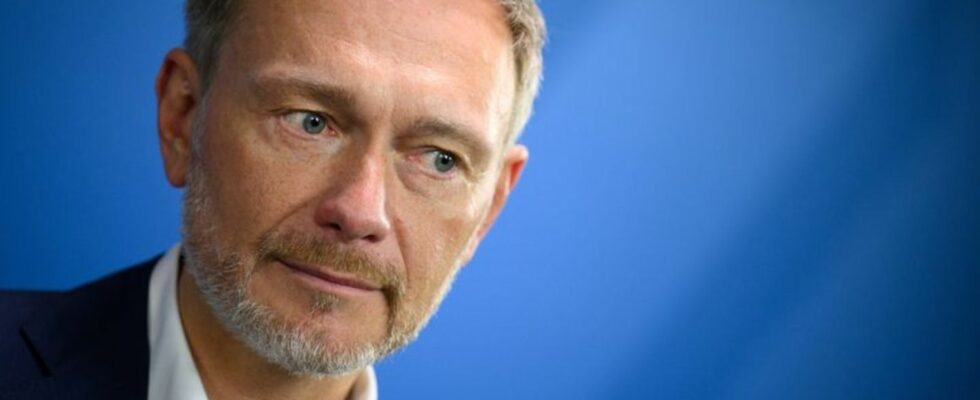Household
Lindner: Work on citizen’s allowance, debt brake applies
“Those who claim social benefits should make an effort to get back to work”: Christian Lindner. Photo
© Bernd von Jutrczenka/dpa
There is not much time left for the extremely difficult negotiations on the 2025 federal budget. Finance Minister Lindner confirms his austerity policy. SPD politicians do not want an austerity budget.
Lindner sees “a willingness to talk” about this issue among the coalition partners SPD and the Greens. He explained: “The majority of citizens feel it is unfair if the difference between working and not working is too small. Anyone who claims social benefits should make an effort to get back into work.” The citizen’s allowance, the successor to Hartz IV, was introduced on January 1, 2023.
New budget in the cabinet at the beginning of July
The red-green-yellow federal government of Chancellor Olaf Scholz (SPD) is facing particularly difficult negotiations on the budget for the coming year due to the austerity measures imposed by the debt brake on the one hand and the spending wishes of the ministries on the other. The cabinet is expected to approve the budget at the beginning of July. According to information from the German Press Agency, a special meeting of the SPD presidium has been scheduled for Sunday. On the same day, Scholz, FDP leader and Finance Minister Lindner and Vice Chancellor Robert Habeck (Greens) will meet to discuss the federal budget for 2025.
In the interview, Lindner confirmed that the debt brake applies. “I agree. Because debt is also a burden on future taxpayers in the form of interest.” SPD politicians, on the other hand, have repeatedly called for the debt brake to be suspended and for tax increases to finance the new budget. Lindner made it clear: “We have a coalition agreement. The FDP’s central condition for joining the Scholz government was that there would be no tax increases and that there would be a return to the debt brake after the enormous Corona debts.” The FDP is not terminating this coalition agreement – “others are constantly questioning it,” he said in response to a question about the future of the traffic light coalition.
SPD politicians demand clear stance from the Chancellor
At the same time, after their party’s historic defeat in the European elections, SPD politicians expect Scholz to be more aggressive in the coalition in favor of the SPD’s core concerns. The party’s left-winger and Bundestag member Tim Klüssendorf told the “Süddeutsche Zeitung”: “We need a plan B when things get tough on July 3 and Olaf Scholz cannot agree to 30 billion in savings, but Christian Lindner also does not move. Because we will not have such an austerity budget.” The budget is to be approved by the cabinet on July 3. According to the “Süddeutsche Zeitung”, going into the 2025 federal election year with an austerity plan in line with the FDP’s wishes is described internally within the SPD as a “nail in the coffin” and another economic stimulus package for the AfD.
Lindner made it clear that July 3rd is not set in stone for the cabinet decision on the new budget. “July 3rd would be the usual date,” he said. “But in the balance, a precisely designed and good result is more important to me than a quick one.”
Lindner reserves supplementary budget for 2024
The minister also commented on a possible supplementary budget to the 2024 budget: “We are looking at the development of tax revenues and government spending. If they diverge too much, I am obliged to act.” For example, the Ministry of Economic Affairs has announced that green electricity will be nine billion euros more expensive. “If we have to act, a budget freeze would be conceivable on the one hand,” he explained. “But that would also affect investments and would exacerbate the weak growth of our economy. On the other hand, a supplementary budget would make it possible to recalculate the borrowing permitted due to the economic situation.” The government of Hendrik Wüst (CDU) in North Rhine-Westphalia has just done that, “and I reserve the right to do so as well.”
The debt brake was enshrined in the Basic Law in 2009 after the global financial crisis. According to this, the federal and state governments are no longer allowed to balance their budget deficits by taking out loans. While the states are absolutely prohibited from taking on debt, the federal government has a small amount of leeway. After years of exceptions, partly because of Corona, the federal budget for the current year has so far complied with the debt brake again.

